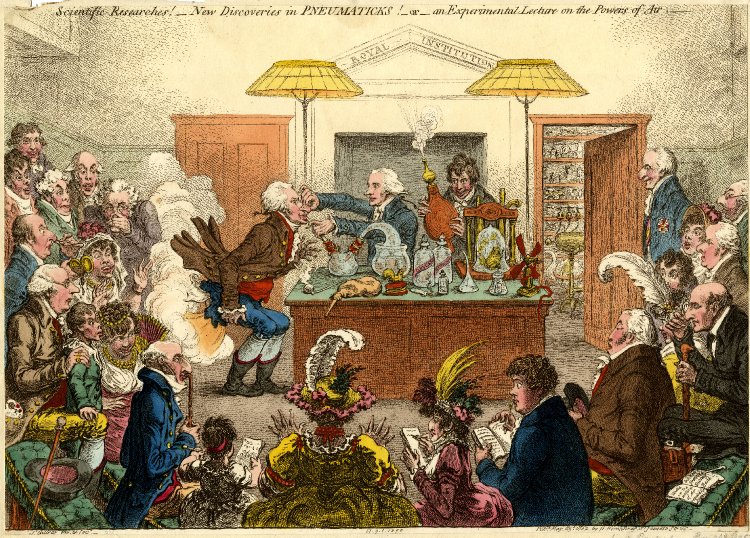When was the last time you looked around you and wondered, ‘How on Earth did I get here?!’
I had one of those moments – possibly the biggest of my career so far – on April the 10th, in the Royal Institution‘s iconic lecture theatre. In one sense I knew the answer (from Kent via Victoria and Green Park underground station), but even now, two weeks after the event, I’m still trying to wrap my head around how I came to talk about my PhD research from the same spot as such renowned science communicators as David Attenborough, Richard Dawkins and Carl Sagan.
This evening @Ri_Science I stood where Michael Faraday, Humphrey Davy & David Attenborough have stood – where the existence of the electron was first announced – and got to talk about my research.
An incredibly humbling, gently mind-blowing experience. Just amazing.#phdlife #3MT pic.twitter.com/QQymMaQWFR— Oliver Wilson (@OliJWilson) April 10, 2018
The Royal Institution (Ri) was founded in 1799 by Sir Joseph Banks, President of the Royal Society (and first European naturalist to visit Australia’s eastern coast), ‘for diffusing the knowledge… of science.’ It was here that Humphry Davy discovered elements from boron to barium, where his assistant and successor Michael Faraday (whose picture Albert Einstein had on his wall) made groundbreaking discoveries in electromagnetism and electrochemistry, and where the two helped to pioneer an outreach programme that was open and accessible from the outset. This is neatly illustrated in a cartoon of an early lecture: not only does the audience contain women and children alongside men from high society, but it also looks like a lot of fun!

Ri manager John Hippisley experiences a dramatic demonstration of ‘Pneumaticks’ in 1801 at the hands of Professor Thomas Garnett, as Humphry Davy stands by with bellows. Caricature by James Gillray, 1802.
So no wonder I felt awestruck – and standing in front of the lecturer’s desk and hearing ‘Faraday’s ghost’ (a trick of the acoustics) repeat my words back to me didn’t do much to put me at ease. I was there to present a three-minute overview of my PhD project as part of an event called ‘Our Renewable Future’. The evening’s main speaker, Prof. Bruce Hood, had been a judge and sponsor of last year’s national Three Minute Thesis (3MT) competition, and invited me to join him and Euan Doidge (the 3MT people’s choice winner) to discuss aspects of human-environment relationships and their significance for our planet’s future.
It was a real privilege to have this platform to showcase the importance of past perspectives in this debate – after all, Brazil’s pre-Columbian people didn’t relate to their environment as modern Europeans do, and echoes of future conditions can be found in past climatic and environmental changes. It was also fun to introduce a wider audience to the ‘fossil pollen time machine’, a phrase which was part of the first version of my 3MT talk last year. And, although I was still in a bit of a daze for the first round of audience questions, it was great to hear people engaging with the issues the topic raised.
One perceptive questioner, for instance, asked about how representative pollen records are – a good opportunity to talk about Maca’s modern pollen research (which we’re preparing for publication) and John’s search for the origins of chocolate forest islands. Another asked whether, in light of my comments about past fluctuations in climate, I had any suggestions about engaging with climate change sceptics/deniers – I wish I could have shown Katherine Hayhoe‘s brilliant Global Weirding video on the subject, rather than having to try and summarise it!
What a great @Ri_Science evening! Fantastic 3MT presentations by @EuanDoidge & @OliJWilson with a great audience Q&A. Chemistry Paleo-ecology & Psychology all talking about climate change, renewable technologies & the future of ownership
— bruce hood (@profbrucehood) April 10, 2018
It was an incredible evening, and even now I have to pinch myself when remembering it. I’m enormously grateful to Bruce for sharing his platform, to Martin at the Ri for making me feel like less of an impostor, and to everyone who actually came to the event for being so generous in their responses to it! I know opportunities like this come around once in a blue moon, and I’m so glad I was able to make the most of this one.
Oli

